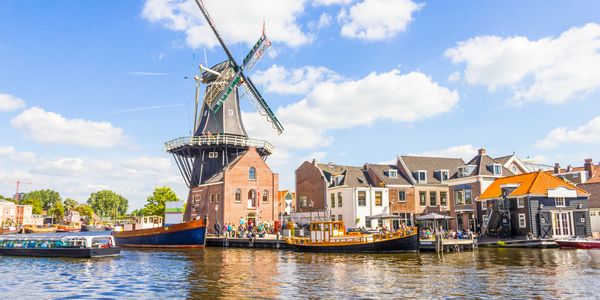Municipal Parking Services: Revealing drivers’ parking behavior to unlock new commercial opportunities

Region
- America
Country
- United States
Product
- IBM BigInsights
- SoftLayer
- Findability Platform
- MPS Sentry meters and software
Tech Stack
- Cloud-based analytics
- Hadoop
Implementation Scale
- Enterprise-wide Deployment
Impact Metrics
- Productivity Improvements
- Customer Satisfaction
Technology Category
- Analytics & Modeling - Big Data Analytics
- Infrastructure as a Service (IaaS) - Cloud Computing
Applicable Industries
- Cities & Municipalities
Applicable Functions
- Logistics & Transportation
Use Cases
- Real-Time Location System (RTLS)
- Predictive Quality Analytics
Services
- Cloud Planning, Design & Implementation Services
- Data Science Services
About The Customer
Municipal Parking Services (MPS) is a company that designs, develops, manufactures and markets technologically advanced parking solutions. Their patented Sentry Meter and SAAS software are connected devices with built-in touchscreens and cameras that capture real-time data about drivers and parking behavior. The company's goal is to make parking fair by helping drivers find, park and pay for available spots. The meters’ seven-by-four-inch color screens also provide information about the local area, and use cameras and sensors to capture irrefutable evidence of infringements. MPS aims to analyze data from these meters to develop even smarter parking services.
The Challenge
Municipal Parking Services (MPS) designs, develops, manufactures and markets technologically advanced parking solutions, such as its patented Sentry Meter and SAAS software – a connected device with built-in touchscreen and cameras that capture real-time data about drivers and parking behavior. In most municipalities, parking is an under-utilized asset. Few cities have the resources to fully enforce their parking rules. As a result, it’s estimated that only 50 percent of people comply and pay in full for their parking, and only 20 percent of infringements are actually penalized, due to a lack of enforcement personnel. MPS wanted to analyze data from these meters to develop even smarter parking services, but the sheer volume of data made this difficult to achieve.
The Solution
MPS implemented the Findability Platform, a sophisticated reporting and analytics solution developed by Findability Sciences, powered by IBM BigInsights® technology, and running in the cloud on SoftLayer®. This architecture allows MPS to “land” all of its meter data, combine it with weather data and other external data, and analyze it rapidly. As each meter creates around 500 sessions of data per day, this ability to handle high volume, high velocity data is critical. IBM BigInsights adds an important analytics component to the Findability Platform, allowing clients to uncover key insights about customer behavior from large volumes of data. Findability Sciences runs the Findability Platform and IBM BigInsights on SoftLayer, IBM’s state-of-the-art cloud platform. SoftLayer provides a dedicated environment of virtual servers to support the parking analytics solution for MPS, hosted at IBM data centers in the US.
Operational Impact
Quantitative Benefit

Case Study missing?
Start adding your own!
Register with your work email and create a new case study profile for your business.
Related Case Studies.

Case Study
Turning A Stadium Into A Smart Building
Honeywell created what it called the “intelligent system” for the National Stadium in Beijing, China, turning the venue for the opening and closing events at the 2008 Summer Olympics into a “smart building.” Designed by highly controversial artist Ai Weiwei, the “Bird’s Nest” remains one of the most impressive feats of stadium architecture in the world. The 250,000 square meter structure housed more than 100,000 athletes and spectators at a time. To accommodate such capacity, China turned to Honeywell’s EBI Integrated Building Management System to create an integrated “intelligent system” for improved building security, safety and energy efficiency.
.png)
Case Study
Smart Street Light Network (Copenhagen)
Key stakeholders are taking a comprehensive approach to rethinking smart city innovation. City leaders have collaborated through partnerships involving government, research institutions and solution providers. The Copenhagen Solutions Lab is one of the leading organizations at the forefront of this movement. By bringing together manufacturers with municipal buyers, the Copenhagen Solutions Lab has catalyzed the development and deployment of next-generation smart city innovations. Copenhagen is leveraging this unique approach to accelerate the implementation of smart city solutions. One of the primary focus areas is LED street lighting.

Case Study
Buoy Status Monitoring with LoRa
The Netherlands are well-known for their inland waterways, canals, sluices and of course port activities. The Dutch Ministry of Infrastructure indicates that there are thousands of buoys and fixed items in and near water environments that would profit from IoT monitoring. One of the problems with buoys for example, is that they get hit by ships and the anchor cable breaks. Without connectivity, it takes quite some time to find out that something has happened with that buoy. Not to mention the costs of renting a boat to go to the buoy to fix it. Another important issue, is that there is no real-time monitoring of the buoys at this moment. Only by physically visiting the object on the water, one gains insight in its status.

Case Study
China Mobile Smart Parking
Smart Parking, powered by NB-IoT technology, is making it easier for drivers to find free parking spots. Cities can better manage their parking assets and maximize the revenue available to them as a result. Drivers searching for parking create congestion and pollution by circling and hunting for available parking. Smart Parking services are able to significantly ease these problems by guiding a driver directly to a parking space.

Case Study
Barcelona Case Study
Barcelona’s heavy traffic and its associated high levels of pollution were the primary factors that motivated some companies and universities to work on strategies for improving traffic in the city centre. Bitcarrier is one of the technologies involved in the In4Mo Project, whose main objective is to develop the applications that form the core of smart mobility, one of the fundamental pillars of the smart city concept.



